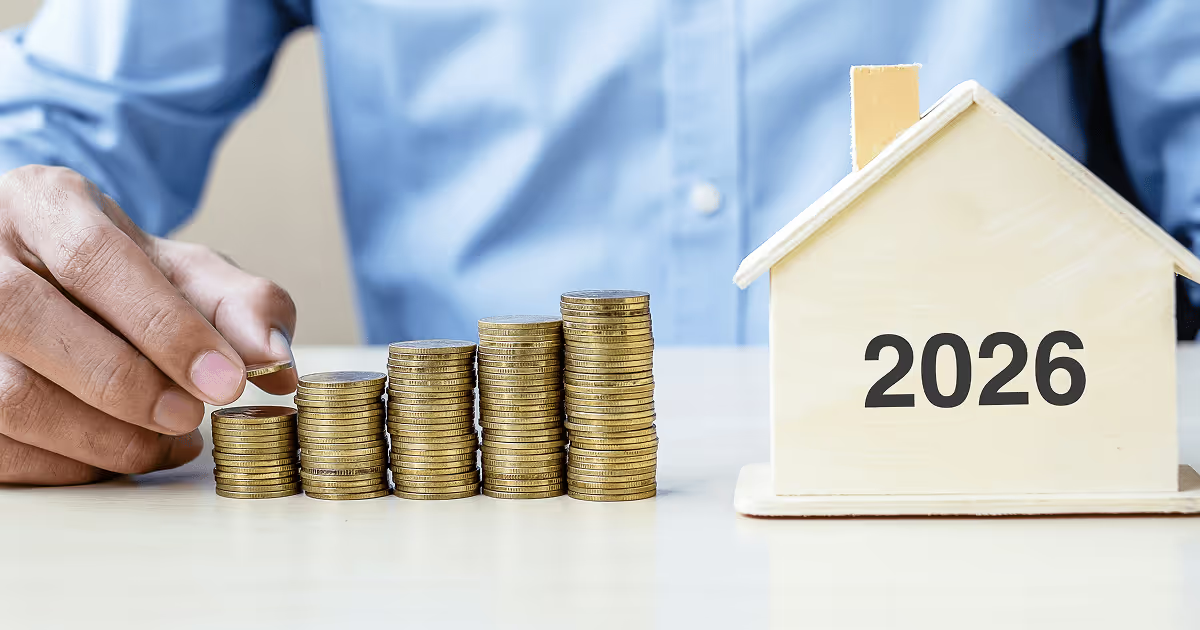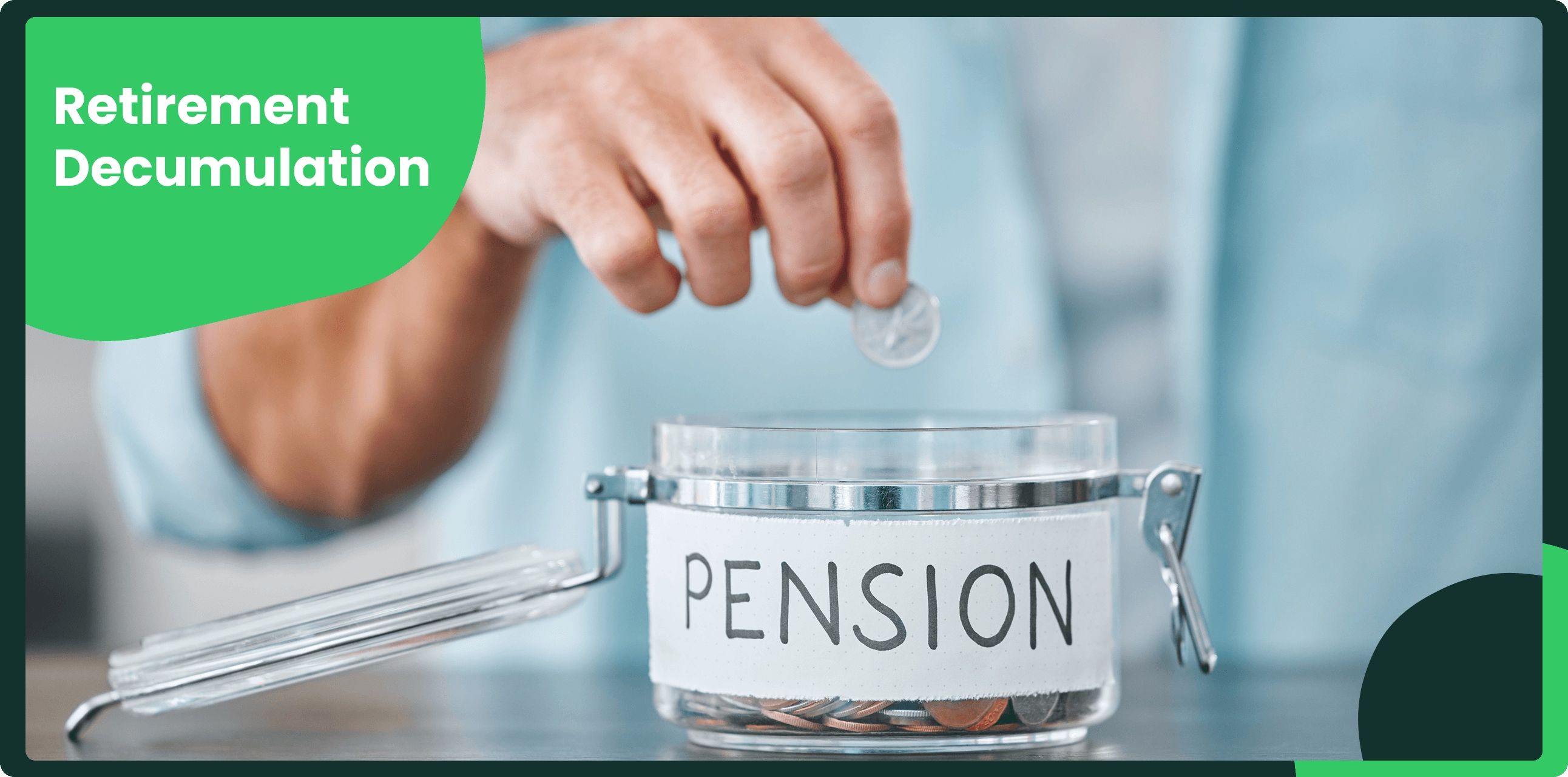Retirement is an exciting time for many of us, but not for those who experience retirement decumulation. It can be a daunting challenge when the certainty of employment income ceases, and we must live off built-up resources until we draw our last breath.
This problem should be limited to a large extent for those lucky enough to have a good-quality Defined Benefit pension scheme, as long as income keeps up with inflation. However, increasing numbers are unlikely to have that option and might rely on a combination of savings, investments and income-producing assets.
It is often said in the financial industry that a lot of what we deal with comes down to two main problems: dying too early and living too long. Life assurance is the answer to the first issue, but how do we cope with running out of money before we shuffle off this mortal coil?
Example of retirement decumulation

As always, the benefits of diversity and not keeping all your eggs in one basket cannot be stressed enough. I recently had a conversation with a Spanish expat (let’s call him John) who was concerned about running out of money too early.
His problem began many years ago when he decided not to invest in a traditional pension. At the time, before pension freedoms were introduced, he saw the risk associated with annuity-based schemes as poor value for him as he didn’t expect to live much longer than age 65. He was not impressed to find out that his pension pot would revert to the insurance company if he died 1 day after retiring. He had a point!

Had John kept an eye on pension legislation, he might have changed his mind when pension freedoms were introduced, but it’s too late now. He is 70 years old and in good health. As predicted in the 1980’s, people are living longer than expected; thankfully for him, he is still going strong. His problem, however, is more about living too long than dying too early (from a financial planning perspective, of course!).
Not believing in investing in anything other than property, John finds himself in a difficult position. He owns his house, but it doesn’t provide any income as he lives there, relying on savings in the bank and the UK state pension. He lives in Spain though, so as well as seeing the value of his savings reduce after the recent devaluation of Sterling, his pension has gone the same way and after being in a relatively comfortable position, he now finds himself having to use more of his Sterling savings than pre-devaluation to provide the same level of income and lifestyle.
Retirement decumulation strategy

1. Firstly, he should reassess his attitude to investment risk. A cautious investor like John might struggle to consider increasing his risk tolerance level. However, it is the only way to create more income from his savings. This doesn’t mean investing in crazy overseas ‘wing and a prayer’ funds. Plenty of high-quality ‘income funds’ offer 4-5% per annum distributions.
John’s capital will be at risk to some extent; however, he can reduce this risk by talking to an independent investment professional about available options. To complete the job, his funds should be placed inside a Spanish-compliant bond to maximise tax advantages. This would result in his income rising higher than inflation, effectively indexing it.
2. Next, John should work with his adviser to assess a more realistic mortality expectation. Let’s say he has around 15 more years to live. Calculations can be made to give him a more accurate picture of how much he needs per annum to avoid running out of money. This is a mathematical exercise where we make assumptions about investment returns, income payments and currency rates.
Different scenarios should be calculated: best case, worst case and something in the middle.
3. Thereafter, John should have a look at his currency position. Sterling is relatively weak against the Euro, but this may not always be true. If Sterling strengthens for whatever reason (an improved Brexit deal, for example), he should consider changing the currency of his savings to Euros. This eliminates any future fluctuations and can be included in the scenarios above.
4. Lastly, and this is just as much of an emotional issue as anything else, he might consider selling his property. His house is worth around €250,000. Let’s assume he can secure a long-term rental contract for €750 per month and lives until he’s 85.
This would equate to €135,000 in rental payments over that 15-year period at a flat rate. If we assume modest rent inflation, he might end up paying around €150,000. Importantly, however, he will have use of the capital from day 1 and although it will reduce, that will only be by €750 p.m. As such, he will have an additional €250,000 to invest, which, if he could achieve an average income level of 4% p.a., would produce an extra €10,000 per annum income in the first year. A more accurate calculation would have to be made. However, the general principle is sound.
Income funds also produce capital growth, of course, so as long as he selects a high-quality fund and sticks with a long-term plan, his capital should not reduce as quickly as if he had left it in a bank account paying around 1% p.a.
The objective would be to change John’s situation from being ‘asset rich - income poor’ to one where his income would benefit from a much-needed boost and his capital would change from illiquid bricks and mortar to liquid and easily accessible funds.
If you would like some advice on retirement decumulation strategies, please get in touch.
About Phil Loughton
He has worked in the financial services industry for 35 years and is an expert in expatriate retirement planning.













